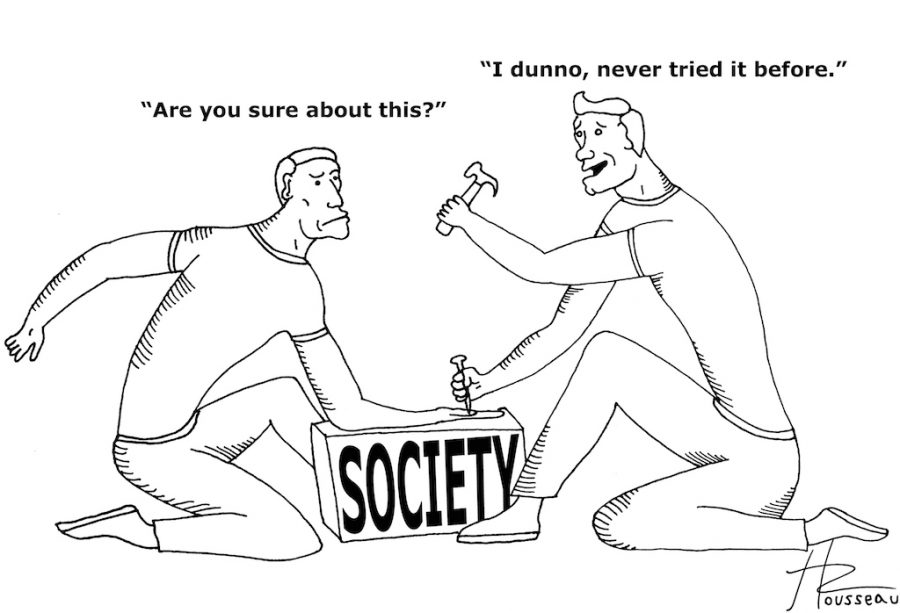Relearning lessons in our generation
Evaluating how we learn without the personal connection to change
October 1, 2016
Each generation has its tragedies, its triumphs and its lessons. As millennials, we have our own set of issues that we have to tackle. Self-gratification, political correctness, technology addiction and the list goes on.
But, as we examine this issues we have to ask ourselves: Are there some lessons that each generation has to relearn?
Most of us high school students were either young children or unborn when 9/11 happened. This event shocked the nation and forever changed the way we saw the world. Now, airport security is high and at any large event in our nation there are rows of security guarding the event. As teenagers, we have grown up with this; we find nothing strange about it. Without really experiencing 9/11, we are somewhat detached, and maybe a bit complacent.
Another obvious example is the Soviet Union from the 1920s to the 1980s. Teenagers and young adults were either unborn or too young to remember the horrors of the socialist Soviet Union. This may account for the sudden surge in a Bernie Sanders type politician. If we did not see how people suffered under the lofty ambitions of Lenin or Stalin, Socialism, and a politician like Sanders may still look appealing.
Because we did not see it happen with our own eyes, we tend to ignore history, and to some extent, reality.
Teenagers, in every generation, tend to want something to fight for; does this mean that lessons about the flaws of a political system, ideology or lifestyle have to be retaught?
If so, then history class would seem like the best place for this. But, most students go into their history class dreading the dry material and wondering why learning about something that happened 100 years ago is relevant to them. Not only should students be taught history, they should be taught why we learn history.
History is extremely personal; if we were taught to look through someone else’s eyes during an event, rather than in a detached manner, history becomes that much more useful.
Our generation not only has an understanding of society built upon the progress of centuries past, but it is also defined by a strong bond to technology. This resource has helped us as students to learn more about ourselves in order to solve a list of problems.
However, this technological advent has also brought on some social challenges as well. As our world gets smaller, our opinions get bigger and so there is less space to breathe as individual politics and cultural identities begin to brush shoulders with each other. This creates tension in different situations that we as students cannot just google the solutions. Looking back is just as important as looking forward.
It is easy to flaunt tradition as a way to “fit in with the crowd” but most of our lives revolve around traditions. These underlying principles have gotten us to this point in our lives. A point where we can question the past and hope for a brighter future.
History is extremely useful to our lives. Bottom line, there are some lessons that have to be retaught to people our age. We all know that every teenager has to break a couple of rules to see why they exist. But for the vastly more important issues, an understanding of what has happened before us must be given to each young person.









